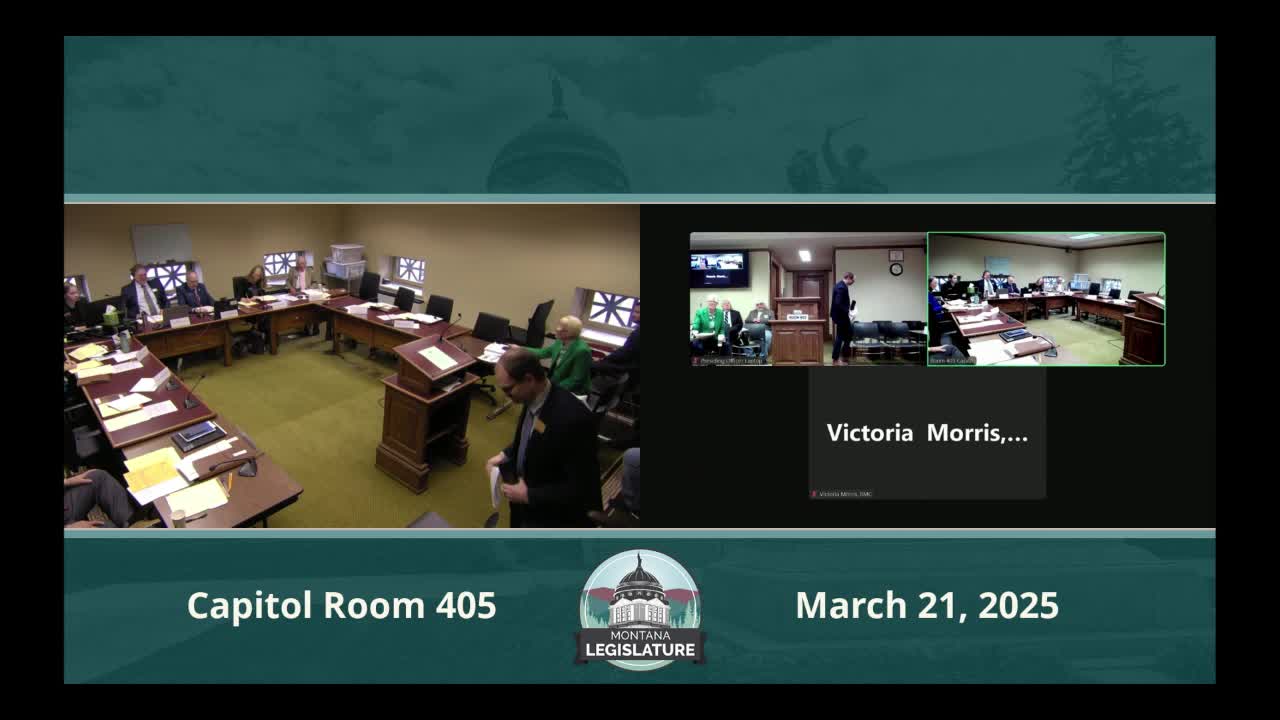Senate Tax Committee approves amendment to SB 117 changing newly taxable capture, inflation cap and creating reserve for large taxpayers
Get AI-powered insights, summaries, and transcripts
Subscribe
Summary
Committee adopted an amendment to Senate Bill 117 that raises the allowable inflation adjustment for local levies, reduces the share of newly taxable value counties may keep, and requires a reserve account for large taxpayers; the committee then advanced SB 117 to the Senate floor as amended.
The Senate Tax Committee conducted executive action on Senate Bill 117 and approved an amendment that revises how local governments may account for inflation and newly taxable property. The amendment was presented to the committee by a staff presenter and approved by voice vote; the committee then moved the bill as amended to the Senate floor.
Under the amendment described to the committee, the prior statutory allowance that let counties use "half the rate of inflation" would become a full inflation allowance, capped at 4 percent averaged over the last three years. The amendment also changes how newly taxable property is treated: for class 4 property (smaller businesses and homes) 75 percent of newly taxable value may be retained by the local government and 25 percent would be used to reduce mills for existing taxpayers; for other classes the amendment sets a 50 percent capture with a 10 percent portion required to be placed into a large‑taxpayer reserve account.
Staff walking through the amendment told the committee the reserve account is intended to smooth sudden losses if a large taxpayer leaves a county. "This gives them a savings account to say we're gonna smooth that," the presenter said, explaining that the reserve's earnings may be used for targeted investments while the corpus is preserved and that use of the corpus is triggered only when a large taxpayer's drop meets specified thresholds.
The amendment also defines a "large taxpayer" threshold (taxable value in the top 20 percent of county taxpayers) and sets a trigger for reserve use when a large taxpayer's taxable value declines by 25 percent or more from the prior year. The amendment enumerates eligible uses for reserve principal investment income — including paying outstanding capital bonds, temporarily reducing mill levies over a 10‑year period, attracting industry, expanding employment, and infrastructure investment.
Senators discussed the policy balance between providing relief to existing taxpayers and allowing local governments to retain revenue from growth. Senator Beard asked for and received confirmation from the presenter that depositing into the large‑taxpayer reserve is required by the amendment. "So if you go to page 50%, they have to go back to the requirements ... where they shall deposit annually the revenue generated from newly taxable classes other than class 4 and the large taxpayer reserve account," the presenter said.
Committee members expressed support for the amendment’s effort to address long‑standing property‑tax pressures. Senator Fern said the change to full inflation up to 4 percent was important for local governments that had been constrained by the half‑inflation rule; Senator Dunwell said he would vote yes reluctantly, indicating the bill still needed improvement but supported moving it forward.
The committee approved the amendment by voice vote and then approved SB 117 as amended, advancing the bill to the Senate floor for further consideration. Proxy votes were recorded during the voice votes (including aye votes recorded for several senators by proxy).
